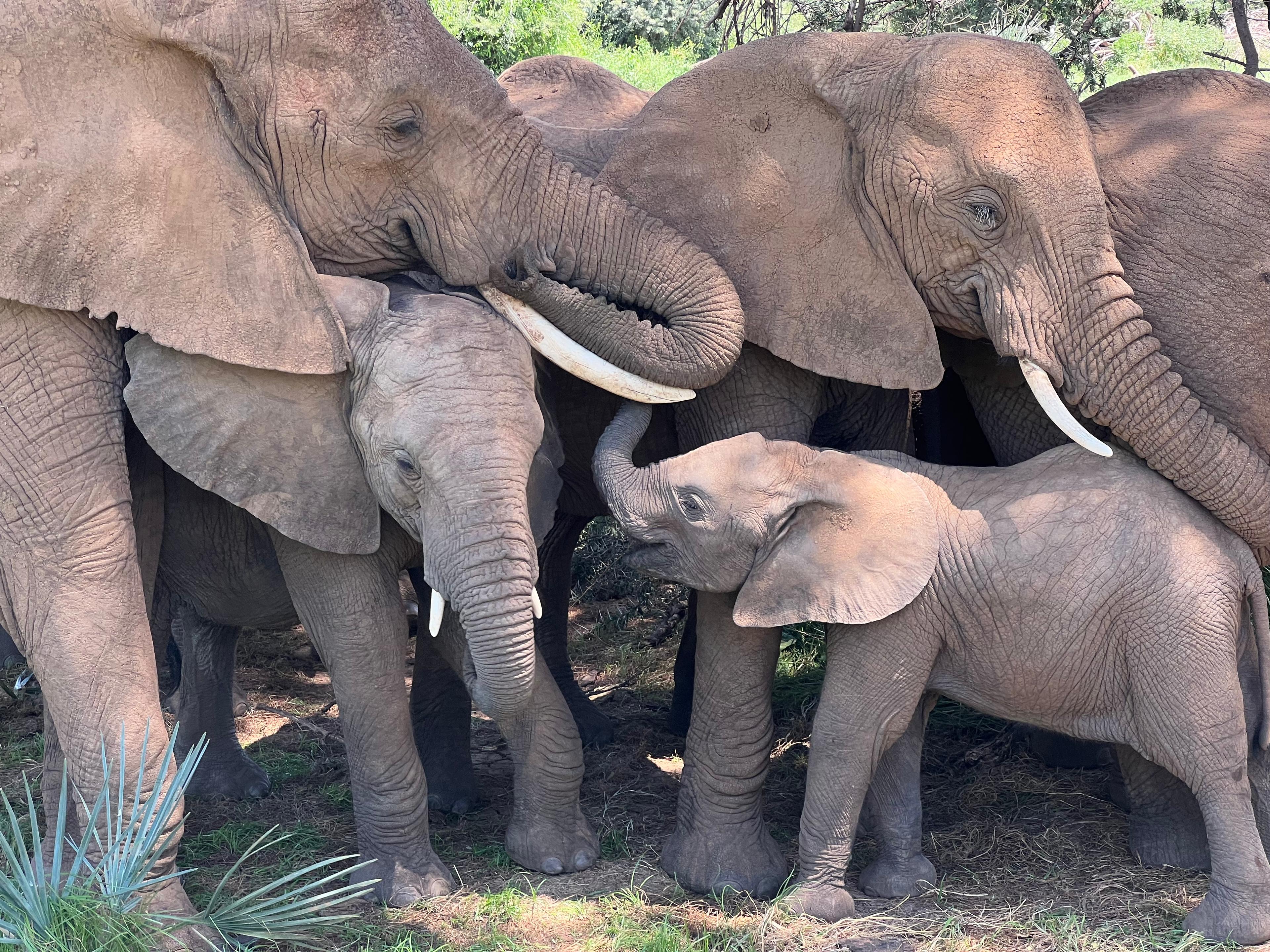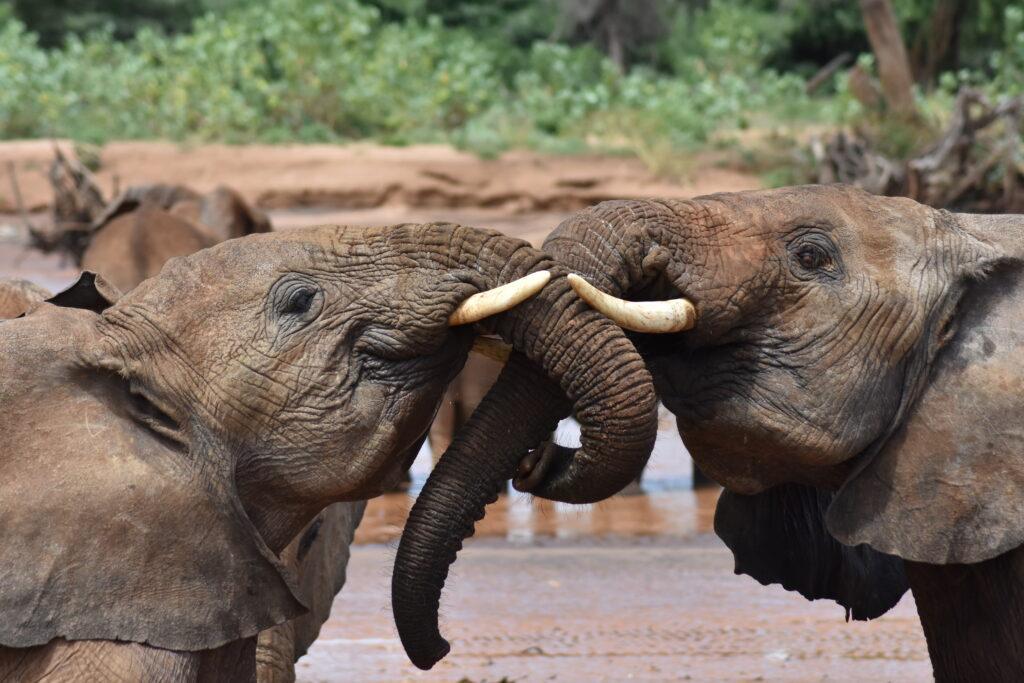
Elephants have distinct names for each other just like humans do, say researchers at Colorado State University who've been studying wild African elephants.
One of the study’s authors, George Wittemyer, said it’s already well-known that elephants are complex intellectual and social creatures.
“Elephants maintain really tight bonds between mothers and their offspring, siblings, grandmothers, the nuclear family,” said Wittemyer, noting that elephants also have strong bonds with non-relatives. “And one of the things that’s quite obvious when you’re in the field with them is that they’re constantly conversing … and it seems like it's a pretty key component to their social networks.”
How did researchers first realize elephants had names?
Researchers said while observing elephant behavior in the wild, they noticed that when elephants gathered in large groups, sometimes the matriarch of a group would give a call and the entire group might respond by gathering around her or following her.
“Then at other times, she gives seemingly a very similar call and nobody will react except a single elephant in the group and that elephant will respond or come up to her,” Wittemyer said.
From that, researchers hypothesized that elephants have a way to communicate with whom they want to talk.

In other words, a way to address a specific elephant using sound – what we might call a name. So, they started recording elephants. The challenge is that elephants speak infrasonically – about half of the sound in their call is below what is audible to the human ear,
“We had to use a special microphone to record these calls and we also had to be quite close to them because sound (changes) with distance, so it was a bit challenging (to do) the field work,” Wittemyer said.
Researchers collected nearly 500 elephant calls they believed had the potential to be distinct “names.” They analyzed the calls using machine-learning techniques and the evidence suggested the calls were “vocally labeled” for individual elephants.
To test the theory, Wittemyer said, researchers played back the calls for the elephants. They found an elephant responded energetically to recordings of their family or friends calling to them by calling back to or moving toward the elephant speaking. Elephants did not respond or move toward calls meant for other elephants.
To illustrate this, researchers released a video that includes this call and response between elephants. The elephant hears another elephant vocalizing a call that researchers have identified as the first elephant’s name and immediately, it perks up and responds.
Very few animals use names similar to the way humans to do
George Wittemyer says these African elephants are among the first animals known to have names similar to humans.
“My name's George. It has nothing really to do with me other than that my parents gave it to me and I tell people that's my name, but it doesn't necessarily manifest something about me,” Wittemyer explained. “So they're arbitrary labels that we use and it looks like elephants do the same.”
Wittemyer said it suggests that elephants are able to understand abstract concepts – that they can create a sound that isn’t inherent to the identity of the elephant they’re trying to connect with and get its attention.
He suggests this finding and others about the complexity of these animals should make humans more sensitive to other living things.
"The fact that we can recognize how cognitively advanced and how nuanced the thinking process is by elephants should give us pause on our sometimes flippant behavior towards the natural world," said Wittemyer. "There's really astounding things going on on this planet and we often take it for granted that we're the most important (living) things."
Wittemyer said he hopes the study highlights that other creatures, not just humans, have complex lives and nuanced relationships and that they are thinking in complex ways humans don’t understand.
The findings were published in June in the journal Nature Ecology and Evolution.









